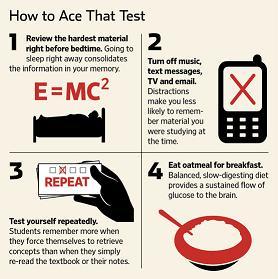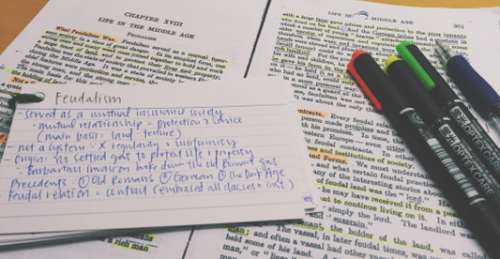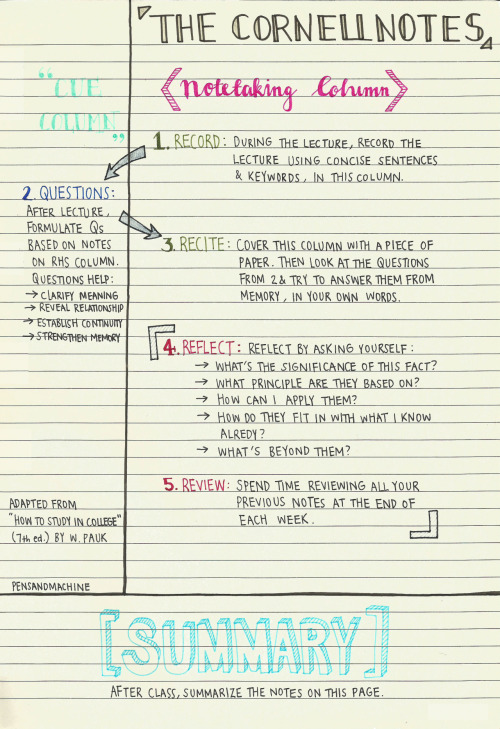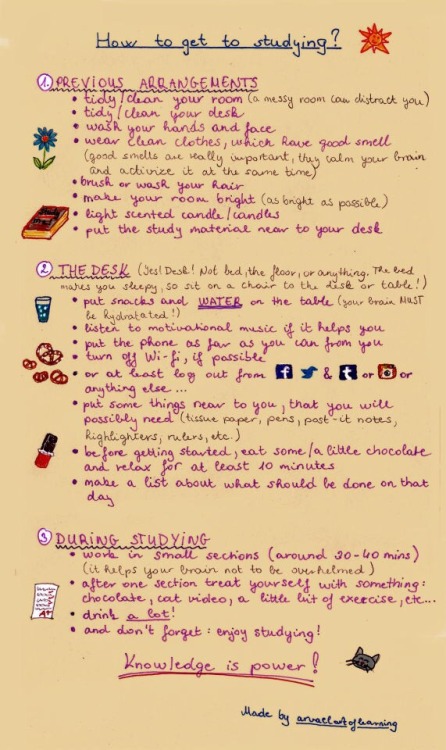#study tip
Live radio channel perfect for studying!
Like & Reblog if you enjoyed the music!
It’s vivanthitang with the #studyzone of the week! Hop on her blog and show some tumblr love!:) Tag your photo with #studyzone for a chance to get featured on our blog too!!
For more follow How To Study Quick!!
Post link
- A coffee shop can provide a stimulating community,
background noise, relaxed atmosphere, wifi, and coffee! It can be convenient for small groups, studying with a partner or alone. You can also be unknown and unbothered, and easily turn off your cell phone to avoid that distraction! - Your school’s study lounge can also be convenient
for studying alone or in small groups. However, if the noise, movement or distractions of friends or students are too distracting, then relocate to where your studying will become more effective. - Your bedroom/personal space can be convenient
to fit your schedule, as well as have all your study materials at hand. Its comfort can be a mixed blessing if you take too many naps! - Kitchens are conducive to studying,
with good lighting and open space for all your materials. You also have nourishment at hand, but snack with fruit and vegetables to avoid heavy foods. - If you focus better in your basement, great!
Music can make for good background noise, but make sure it stays in the background: don’t lose track of what you are studying. - Your living room is a great place to study
with comfortable seating and enough space, but avoid the distractions or projects around the house. If you love watching the television, it may not be the best option for a study space. - The library offers professional services,
a quiet environment, Wi-Fi, and even windows with a view! An empty classroom provides an even quieter, even secluded space.
For more tips follow How To Study Quick!!
1) Decide on your paper size
Before you start writing anything it’s really important to work out what size paper you want to do your mindmap on. Be it A3, A4, A5 or any other size you can think of, deciding this early on will make things much easier in the long run and leave you with a much more organised mind map
2) Work out the basics
Before you actually start writing anything it’s a really good idea to work out the basics of your mind map. What type of bubble do you want the title to be in? Spiky or a cloud or just a plain circle? What kind of lines to you want leading off from it? Arrows or just plain lines? Straight or curved? Taking 30 seconds to work these out before you start will make everything much easier in the long run and leave you with a much neater and better organised mind map
3) Choose what to write with
This part is all down to personal preference. Do you prefer writing in a plain colour and then highlighting later? Do you want each section in a different colour? Felt tips or biros? Fineliners or pencils? This is the time when you can think about what you’re most comfortable writing with and what’s going to make it easiest for you to retain the information
4) Add pictures and diagrams
Adding little drawings to aid your explanations is a really great way to help you remember what you write. You don’t have to be good at art to make this work, just add a few little diagrams here and there and you’ll be surprised how much more easily you retain the information
5) Have fun with it
You may be looking at a picture of a mind map online and saying to yourself ‘that’s exactly what I want mine to look like’ but in reality that’ll never happen. You’ll never manage to get a mind map that looks exactly the same as someone else’s and in all honesty that would be a bit boring. Instead just get stuck in and create your own unique masterpiece
For more tips follow How To Study Quick!!
How to go through your readings
I am the kind of person who likes to do things systematically, so here’s kind of a routine of how I go through my readings (this is applicable to all readings, and if you are wondering, I study law (thus this includes cases) and social sciences.
1. Glance through your reading once - look at the titles, have a brief idea of the structure of it.
- Philosophical papers (social sciences readings), for example, typically have a structure and a main idea throughout the paper. This is the step where you try to figure out its structure and the point that the author is trying to illustrate.
- For cases, you can have a look at how many judgements and a brief look at the facts to know what you are about to read.
2. Highlight your reading - colour coding is fundamental. It will help you to keep track of the structure and main point of the readings.
- Red: main/central idea of the article
- Pink: subsequent point
- Orange: subsequent point of the points in pink
- Yellow: other important information
- Green: key words
- Blue: conclusion
3. Type an outline of the article - you may skip this part if you want, but if your exams syllabus include that reading, it will be very handy for you to have an outline so that you don’t have to go back and read the reading once again.
- Basically this part is where you type/write the information you deem important or that will be examined. You should do it in an outline format so that it will be easier for you to study.
4. Summarise the outline/reading on an index card - this is a way to show yourself that you have truly completed the reading. Have the very important information on index card will recall your memory regarding the reading, and the more index cards you got, the higher the motivation you will have to complete the readings since you can see tangible progress. It’s also a great way to review the information especially before/after lectures or before exams.
For more tips follow How To Study Quick!!
Post link
- Eat a meal with slow release carbohydrates and vegetables. Make sure you drink water to keep your brain hydrated.
- Look through your notes, but don’t try to cram because you will likely forget it. If you have time you could do a practice essay/paper.
- Pack your bag, notes and anything else you need for the exam so it is ready in the morning when you need it. If you need to plan an outfit get that ready as well so you don’t waste time in the morning thinking about what you should wear!
- Have a bath, read a book and relax. Try not to think about the exam - I know it’s hard. Try not to use any technology an hour before you go to bed because it awakens your brain and makes it harder to go to sleep.
- Go to bed early, aim for 8 hours sleep but no more than ten hours. If you are well rested and alert you will do better in the exam
For more tips follow How To Study Quick!!
Get up and go for a 5-minute walk
Have a glass of water and a snack
Write a short to-do list
Get out all the supplies you need.
Sit down
Tell a friend you’re going to start studying. (If you don’t have a friend nearby, text them. Or tell yourself. Or tell a wall. Just say it.)
Turn off your phone and close any non-essential internet tabs
Do the very first step of what you need to do. If you have to write an essay, write the first sentence. If you have to read a chapter, read the first sentence. If you have to do a multi-choice quiz, answer the first question.
Congratulations! You have started studying!
Now do the second step. Write the second sentence. Read the first sentence. Answer the second question.
Now do the third step.
Keep repeating.
Now you’ve done more than just start studying! Keep going and soon your to-do list will be all finished.
For more tips follow How To Study Quick!!
1) Try to get to the day before an exam well prepared. The very last day should be entirely dedicated to read notes again or to repeat out loud what you’ve studied. That also means, DO NOT CRAM a year worthy of notes in few hours.
2) Sleep. Go to bed early and make everything possible to get a quiet, long sleep. (Some studies show that revising notions right before going to bed it’s beneficial to the memory. You can give it a try!)
3) Prepare your bag the night before. Everything you could need during the exam should be already packed: pens, pencils, notes for last minute revising, id card, calculator ecc.
4) Also, prepare your clothes the night before. In my academic career I have had almost only oral examinations and for those, apparence is very important. Many times, the professor doesn’t even know you and all his judgment is based only on the 10-15 minutes of the exam. Dress comfortable but nice. I try always to wear something blue because it calms me down and something I like very much, like a nice pair of earrings or my fave bracelet.
5) Set an alarm. You definitely don’t want to arrive late at school for you final exam. You can also meet with classmates before the test to revise together, it’s helpful for sharing last minute tips or have better knowledge trough comparison. But I also know that for some, revising with other people is very stressful and can cause anxiety, so, it’s perfectly okay yo just sit and wait for your exam to start.
6) Try to stay calm. You’ve studied hard for this. You can do it. You are smart and beautiful.
For more tips follow How To Study Quick!!
1. “I Don’t Know where to Begin.”
Make a list of all the things you have to do. Break your workload down ito manageable chunks. Prioritize. Schedule your time realistically. Begin studying early, with an hour or two per day, and slowly build as the exam approaches.
2. ‘I’ve Got So Much to Study…And so Little Time"
Preview. Survey your syllabus, reading material, and notes. Identify the most important topics emphasized, and areas still not understood. Previewing saves time, by helping you organize and focus in on the main topics.
3. “This Stuff is so Dry, I can’t Even Stay Awake Reading It”
Get actively involved with the text as you read. Ask yourself, “What is important to remember about this section?” Take notes or underline key concepts. Discuss the material with others in your class. Stay on the offensive.
4. “I Read It. I Understand It. But I Just Can’t Get it To Sink In”
Elaborate. We remember best the things that are most meaningful to us. As you are reading, try to elaborate upon new information with your own examples. Try to integrate what you’re studying with what you already know. You will be able to remember new material better if you can link it to something that’s already meaningful to you.
Chunking: Example: to remember the colors in the visible spectrum, Rog G.Biv –> reduce the information the three “chunks”.
Mnemonics: Associate new information with something familiar.
5. “I Guess I Understand It”
Test yourself. Make up questions about key sections in notes or reading. Examine the relationships between concepts and sections. Often, imply by changing section headings you can generate many effective questions.
6. “There’s Too Much to Remember”
Organize. Information is recalled better if it is represented in an organized framework that will make retrieval more systematic.
Write chapter outlines of summaries; emphasize relationships between sections.
Group information into categories or hierarchies, where possible.
Information Mapping. Draw up a matrix to organize and interrelate material.
7. “I Knew It A Minute Ago”
Review. After reading a section, try to recall the information contained in it. Try answering the questions you made up for that section. If you cannot recall enough, re-read portions you had trouble remembering. The more time you spend studying, the more you tend to recall. Even after the point where information can be perfectly recalled, further study makes the material less likely to be forgotten entirely. How you organize and integrate new information is still more important than how much time you spend studying.
For more follow How To Study Quick!!
1. You have bad eyesight.
If your eyesight is not good enough for reading, you might not just realize that immediately. Mostly you will feel bored or unfocused while reading. Trying hard to understand the text and reading the passage over and over again will eventually lead to headaches. Also squeezing your eyes is a sign of bad eyesight.
Let a eye specialist check your eyes and get some reading glasses, you will literally see the difference.
People with reading glasses will agree to be more productive when wearing them.
2. You’re dehydrated.
You drank too much coffee not enough water. Drink enough water to keep your body hydrated. Don’t worry that you’ll have to pee a lot.
3. Your blood pressure is too high or too low.
Sometimes our blood pressure will rise or fall depending on our stress level or even the food we eat. Check your blood pressure regularly and consult your doctor if there is any abnormality. If you feel an uncomfortable change of your blood pressure just lay down on your back and lift your legs up. Lean them on the wall or put them on pillows etc. This will help you to stabilize your blood pressure.
4. Your desk is too dark.
If your desk space is too dark you won’t be able to see well. This will make you sleepy and less focused. Get a lamp on your table and light it up as soon as it gets dark outside.
5. Your room is poorly ventilated.
Having bad air in your room may lead to being unfocused. Simply opening the window and letting fresh air in for a couple of minutes will help.
6. You are dressed uncomfortably.
As silly that may sound, if you are dressed uncomfortably you are most likely to be unfocused. If you are at home you can wear your most comfortable clothes. Nothing is off limits. If you are studying outside, try to dress the way you like the most.
Clothes that are dirty or smelly tend to make us feel bad, so you better change your clothes, that will refresh you.
7. You are stressed.
This is nothing new but very common in a students life. There are plenty ways of getting rid of stress but one of the simplest ways is just to put on a hoodie and go for a walk. Even if it’s just a walk around the block. Moving and getting fresh air help to get rid of the bad thoughts and focus.
8. Your hair is oily.
Another thing that sounds very simple but is very annoying. If your hair is oily your head will feel heavy and this might even lead to headaches. Just jump under the shower and get clean. You will see the difference once you sit at your desk again.
For more tips follow How To Study Quick!!
1. Find a good study spot. Find the perfect studying spot for you, whether it be your desk, bed, the kitchen table, a comfy chair, the library, or a spot on the floor with a few pillows and blankets. Study wherever you’ll be comfortable and don’t hesitate to try different studying locations.
2. Wear comfy clothes. Wearing comfy clothes has always helped me. Because truth is if I’m wearing something uncomfortable my mind is not going to be fully focused on studying. With that being said, change into pajamas or a t-shirt and yoga pants, throw your hair up into a messy bun or high ponytail and start studying!
3. Eliminate distractions and stay focused. This is one that I struggle with A LOT. Some things I’ve found to be helpful are… (a) Make a work/study schedule (b) Turn off all electronic devices (unless you need them for studying) or move them to the other side of the room. c) Apps such as 30/30 and FocusNow help me to stay focused and on task. (d) Make sure you have everything that you need in reach (e) Go on Spotify or YouTube and listen to a study playlist, nature sounds, or classical music
4. Take breaks. Taking 5-10 minute breaks every 30-45 minutes of studying really helps. During breaks you could… (a) Workout (b) Watch YouTube videos c) Check social media (d) Jam out to some of your favorite tunes (e) Get a snack …Whatever you choose you do, just make sure you don’t get too caught up in it, be ready to get back to studying as soon as your time is up.
5. Use color. This is one of the most beneficial for me, especially since I’m a visual learner. I use post it notes, colored pens, pencils, and highlighters. You could color code your notes and highlight any important information that you’ll need to remember. Not only does this make everything more colorful, but it also makes your notes easier to read and refer to. Get creative with it!
For more follow How To Study Quick!!
Note Taking TIP: Write keywords in bulletform to capture info quickly during lectures and ensure readability when you review them in the future!
For more tips follow How To Study Quick!
Post link
1. Learn How to Scan
The most important skill you need to develop if you want to read faster is scanning. Many adults find scanning difficult because it feels counter-intuitive. After all, when we were taught to read, we were taught to pay attention to every word in a sentence. However, much of this is unnecessary, because research show that our adult minds have an amazing ability to fill in information gaps.
For example, look at the following piece of text:
‘After this experience she decided that she would never again date menfrom Mediterranean backgrounds, no matter how great they looked or their accents sounded. It simply wasn’t worth the pain.’
By drawing out and focusing on only the highlighted words, I am saving myself the effort of processing every word, and allowing my brain to fill in the missing information.
2. Only Read the First and Last Sentence of Each Paragraph
According to Abby Marks Beale, America’s #1 Speed Reading Expert, people who write to convey information generally follow a fairly tried-and-true formula. That is, to start each paragraph with a topic sentence that introduces the paragraph and gives an idea of where that paragraph is headed. As paragraphs in publications like science and academic journals can contain a lot of information, you’re wasting your time reading all of it if you are already familiar with the topic. Next time you’re faced with a daunting text, try reading the first and last sentence in each paragraph. Chances are you won’t miss much.
3. Turn Off the Voice in Your Head
Another habit we picked up when learning to read in grade school is to sound out words, often from reading aloud. Even as adults, most of us retain this habit to some extent, as over the years, we have become so used to “hearing” the word in our minds. The problem with this is that it takes up unnecessary time, because we can understand a word more quickly than we can say it.
One way to eliminate the voice is to read blocks of words (as mentioned in point 1), as it’s much harder to vocalize sets of words than single words.
Simply eliminating this voice can drastically increase your ability to read faster. However, this techniques does tend to reduce your enjoyment of a well-written text, so you can turn it back on for your favorite crime novelist or poet.
4. Use A Pointer
Often when we read, we tend to ‘regress’, or go over and read the same material again. This is usually due to poor concentration, and results in losing the flow of what your are reading. This is a waste of time, especially when the information you’re re-reading isn’t really necessary. But you can cut down on regression by using a pen as a pointer. Train your eyes to follow the pointer, and this will help you to avoid skipping back.
5. Don’t Multitask While Reading
One of the worst reading habits is reading while watching TV, listening to the radio, or even allowing mental interference to distract you from what you are reading. If you want to read faster, you MUST cut out the distractions and focus solely on the task.
6. Use ‘Soft Eyes’
According to experts, inefficient readers tend to focus on each word, working across each line. This is inefficient because your eye can actually take in about 1.5 inches at a glance, which includes five words. You can also engage your peripheral vision to expand your gaze and take in even more words. You can achieve this by relaxing your facial muscles when reading and allowing your eyes to soften.
7. Ask Yourself Questions About the Text Before You Read
This technique is used by teachers to improve reading comprehension. But it’s also a good way to help you read faster. If you have some idea about what useful information can be taken from the text, make yourself a set of questions and then read quickly to find the answers. This will definitely save you time spent on looking through useless information.
8. Try Speed Reading Software
Many speed-reading techniques can be done manually. However, there is always the temptation to fall back into old habits. If you are serious about learning to read faster, you may want to check out software likeElite Speed Reading , a speed reading training course designed to improve reading speed and comprehension. It uses methods like ‘pointing’, but does it electronically, and is a great way to increase your reading speed.
Living in the information age, we are often bombarded with information we simply don’t have time to process, but if you take these suggestions on board and practice them regularly, you’ll learn to read faster and cut down on the amount of time you waste on information overload in no time.
For more tips follow How To Study Quick!
How To Make Effective New Year’s Resolutions

Look, I know I haven’t posted on here in a while, but one of my new year’s resolutions is to post more so I’m starting with this guide, cause if there’s one thing I’m good at it’s sticking to new year resolutions.
Tip №1: Do something you care about
Don’t write “go to the gym” if you know you’re not actually interested in losing weight or getting fit. Don’t write “read more” if you don’t even like reading. Make your resolutions something you actually would like to do, and can see yourself doing.
Throughout this post I’m gonna be using ‘going to the gym’ as my example resolution, but these tips are of course useable for all kinds of resultions.
Tip №2: Make them measurable
“Go to the gym” isn’t gonna cut it. Instead, write something like “Go to the gym at least 2-3 hours every week”. Setting clear goals will always be more effective, as you know what you have to do. Otherwise, how do you know you’ve reached your goal?
Tip №3: Make a tracker
You can make a tracker for “Go to the gym at least 2-3 hours every week” by making a grid of 2 squares for every week of the year. By colouring them in each time, you can visualize your progress, and therefore use it as motivation. Seeing you’ve already exercised for 12 hours is gonna feel a lot more accomplishing than knowing you’ve exercised for 6 weeks, even though it’s the same thing.
Tip №4: Use a curve
Don’t immediately start with “Go to the gym for 1 hour every day”. You’ll be tired of doing so because you aren’t used to it, and will give up faster. So instead, set a first stage amount, second stage amount, third stage amount, ect.
So with the gym resolution, start with 2 hours every week, then 4 hours every week, then 30 minutes a day, then 1 hour a day, 2 hours a day, ect. See what I’m getting at?
Tip №5: Share your resolutions
If a friend knows your goal, or even better; has the same goal, it’s easier to stick to it. This is also why a lot of people tend to go to the gym with a friend. It’s easier to give up on a goal or habit if you don’t have anyone to hold you accountable. If you stop, your friend will have to go to the gym alone, and you wouldn’t want that, right?
Tip №6: Forgive yourself
So you didn’t go to the gym for two hours this week, but instead only went for 1 hour? Forgive yourself. It’s better to forgive yourself for this one failure to completely give up all together.
Tip №7: Reward yourself
Need an external motivator? That’s totally fine. Make some rules for yourself. “If I don’t miss more than 2 hours at the gym this month, I can go get my favourite scented candle at bath and bodyworks”. Pick something you would like as a reward for reaching your goal, and stick to it!
Note: don’t give yourself your reward if you didn’t stick to your rule. To stick to the candle example, if I bought a candle anyway even though I didn’t stick to my rule, is there really a penalty for not skipping more than 2 hours of exercise? Hold yourself accountable and don’t cheat!
And those were my tips! If you’re looking for some example resolutions, I have a post of my resolutions up on my blog, or you can click the link right here to go to that post directly.
And if you want, please let me know what your resolutions are! Maybe we have some in common and we can keep one another accountable too!
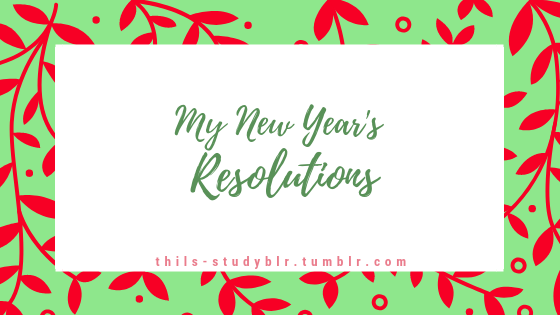
If you want to know the key to making effective new year’s resolutions and how to stick to them, I have a post on that topic on my blog, or you can go to the post directly by clicking this link.
- Use less single use plastic (starting with straws and cups, later also toothbrushes, self care products and lunchbags for school)
- Go to the gym/exercise at least 2 hours every week
- Study at least 30 minutes every day
- Post on Tumblr at least once every week (reblogs don’t count)
- Read at least one book every month
As described in the post I mentioned earlier, these are starting goals. Later on I can up the amount of hours/books/tumblr posts.
What are your resolutions for this year? Let me know in the comments, send an ask, or dm me!
HEY! adhd students! is reading academic texts physically PAINFUL. is it not helping to use read aloud or take pretty notes or use your regular coping mechanisms, even if the text is on a topic you’re interested in?? because I think I cracked the code. you gotta actively read. listen to your lecture or watch a YouTube video or even read a Wikipedia article about the topic, something short and easy. And then come up with some conclusions or theories about it. Now when you read you can find out if you were right or not!! you’re engaging with the text so it adds interest, we LOVE being right so now it’s personal, and you can start sorting the info you get from the reading into useful or not useful depending on what area of the topic you’re interested in which is gonna make it easier when you start writing about the topic. (obviously you’re gonna wanna write about the part you cared about right?) And even the information that was deemed not useful? you’ll be surprised how much of it sticks with you just because you had to know what it means to know if it is relevant to your interests! Now go be the scholarly geniuses I know you are and don’t be intimidated by lengthy readings. this isn’t a tedious task you HAVE to do, it’s an interesting puzzle you’re GOING to solve.





